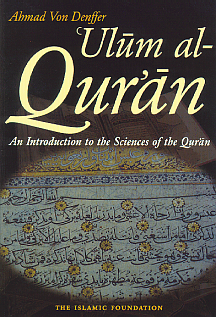 Field: Qur’an
Field: Qur’anTitle: Beginilah Al Quran Mengajar Kami- Tadabbur AlQuran
Author: Mohammad Nidzam Abdul Kadir, Mohd Zamri Mohd Zainuldin
Publication: Telaga Biru Sdn Bhd
ISBN:967510215-2
Rating: 3/5
Level: Beginner
Reviewed by: Nurzemy Dania
Al- Quran merupakan panduan hidup manusia yang utama. Malangnya, rata- rata antara umat Islam semakin kurang menghayati dan menggarap prinsip-prinsip yang telah diturunkan Allah dalam Al-Quran. Buku inimengajar anda tentang prinsip-prinsip asas tentang tadabbur Al Quran. Ditulis oleh dua orang figure yang tidak asing di Malaysia, buku ini membawa pembaca memahami pelbagai prinsip yang penting di dalam AlQuran.
Buku ini dibahagikan kepada tiga bab asas:
1)Bab 1 : Tadabbur Al Quran
Bab ini mengupas tentang makna tadabbur, kaedah baik dalam menafsir AlQuran dan beradab dengan AlQuran
2) Bab 2: Prinsip-prinsip Umum Tadabbur AlQuran
- Prinsip 1: Penerangan tentang tafsir bi al athar dan tafsir bi al Ra’yi
- Prinsip 2: Kesinambungan ayat-ayat yang bertaburan dalam AlQuran
- Prinsip 3: Kepelbagaian tafsiran setiap ayat
- Prinsip 4: Nasikh Mansukh
- Prinsip 5: Antara Mutlaq dan Muqayyad
- Prinsip 6: Kisah-kisah dalam AlQuran-tujuan dan faedah
- Prinsip 7: Faedah penutup ayat
- Prinsip 8: Marhalah yang berbeza dalam penurunan ayat AlQuran
- Prinsip 9: Ayat Makki dan Madani
- Prinsip 10: Asbabun nuzul
- Prinsip 11: Muhkamat dan mutashabihaat
- Prinsip 12: Riwayat Ahli kitab
- Prinsip 13: Sumpah
- Prinsip 14: Pengambilan Hukum(istinbat hukum)
- Prinsip 15: Nilai-nilai dalam AlQuran
- Prinsip 16: Memberi perhatian degan kadar perhatian Al Quran
- Prinsip 17: AlQuran dan sains
- Prinsip 18: Seruan Khitob dalam AlQuran
- Prinsip 19: AlQuran sebagai sumber pertama
- Prinsip 20: Tafsiran yang tidak diketahui
- Prinsip 21: Soalan dan jawapan di dalam Al Qurn
3) Bab 3: Prinsip-Prinsip Bahasa Tadabbur dalam AlQuran
Bab ini merungkai tentang maksud sesuatu lafaz, konsep hazaf dan nahu-nahu dalam bahsa arab seperti yang terdapat di dalam AlQuran
Secara kesimpulan, buku ini banyak membawa pembaca mengenali AlQuran dengan lebih dekat dari segi kefahaman terhadap ayat-ayat AlQuran. Sebagai seorang Muslim yang percaya kepada AlQuran, pemahaman atau tadabbur ini amat penting dalam usaha kita menjadi mukmin realiti, sebagaimana yang termaktub di dalam kitab suci AlQuran.
[More...]


